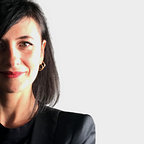The paradoxical theory of change
Change is inexorable. From conception to death, people are constantly changing.
The universe itself is constantly changing, as are all events and structures in the universe. Even when there appears to be no change, slow and subtle shifts are always taking place. Some processes appear to change so slowly that they take on the attributes of unchanging structure.
The paradoxical theory of change is at the core of the Gestalt therapy change theory.
The paradoxical theory of change focuses on the contradiction that the change happens when one becomes what he is not when one becomes what he is not. Change can take place if one becomes aware of what and who he is and investing enough time and effort to be fully invested in his current position.
To become who we can be, we must first become who we are. The paradox is that the more one tries to be who one is not, the more one stays the same.
The journey process is about transformation, about shedding old ways of thinking and acting so that we can be the person we have become. Ironically, the first stage of that journey takes us not outward, but inward, into our identity.
In Gestalt therapy theory the Counsellor is not a change agent that makes change happen. The Gestalt therapist is an agent in the quest to create conditions that maximise conditions for growth, conditions that allow growth to happen when it has been arrested or limited, conditions that focus attention where needed for healing and growth.
Gestalt therapy trusts organismic self-regulation more than therapist directed change attempts. Rather than aiming to move the client to be different, the gestalt Counselor believes in meeting clients as they are and using increased awareness of the present, including awareness of figures that start to emerge (thoughts, feelings, impulses, etc) that the person might or might not allow to organize new behavior.
With this present-centered awareness, change can happen without the Counselor aiming for a preset goal.
The goal of the therapist and his role is to achieve greater awareness, and not to incept a change in the client. Most importantly, the exploration aims for self-recognition and self-acceptance, and not self-denial or self-rejection.
The Counsellor has a very delicate role in supporting clients to change. By support I mean what makes contact possible.
Through supportive processes one can allow for psychological growth when a balance is found between the challenge and support which best suit the client’s needs. Learning needs a challenge in order to stimulate the client enough to be fully aware of the lesson to take from the challenge it is faced with. If the challenge is too hard, the client cannot make sense of what to take from the challenge, and if it is too easy there won’t be enough stimulation for learning to occur.
While this is not something that can be calculated, the therapist should be aware of the client’s ability to support himself, his environment and his limits.
Develop self-awareness and meet your true self. To become who you can be, you must first become who you are.
📩 onlinecounsel4you@gmail.com
🌱 Instagram @counseling_empowerment www.instagram.com/counseling_empowerment/
